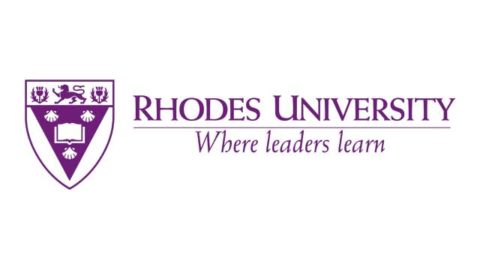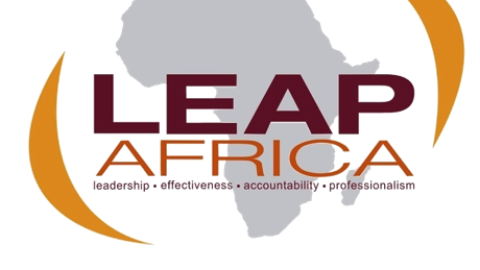By ‘Sola Fagorusi
 The road to 2015 is getting busier. The path to 2015 is getting crowded. The politicking firmament is getting cloudy and soon, it will rain heavily. This is the season of politics and politicians are lacing their boots getting ready to run as far as they can. Numerous clandestine meetings are holding both day and night; the eventual prize at stake is the mandate of the people. The electoral cycle is not complete without the pre-electoral period. It is unarguably the most important part of the whole cycle; one that includes the election period itself and the post-election period. If anything, the pre-electoral period is the time to arrest ill intentions by mischievous politicians who are bent to retain or acquire power by all means. It is during this period that the tone for rigging and all other activities that undermines the electoral process is set.
The road to 2015 is getting busier. The path to 2015 is getting crowded. The politicking firmament is getting cloudy and soon, it will rain heavily. This is the season of politics and politicians are lacing their boots getting ready to run as far as they can. Numerous clandestine meetings are holding both day and night; the eventual prize at stake is the mandate of the people. The electoral cycle is not complete without the pre-electoral period. It is unarguably the most important part of the whole cycle; one that includes the election period itself and the post-election period. If anything, the pre-electoral period is the time to arrest ill intentions by mischievous politicians who are bent to retain or acquire power by all means. It is during this period that the tone for rigging and all other activities that undermines the electoral process is set.
Like in T.M Aluko’s 1964 satirical novel?One Man, One Matchet, a parody of One Man, One Vote. This piece’s title is in itself a spoof of the latter. In Aluko’s Ipaja, the British administrator came to the region to analyse and offer solutions to the problem and could not connect in the local language of the people. The country’s Independent National Electoral Commission (INEC) may as well be on the verge of failure to communicate in the language of a new demography that is now of voting age. It is the generation called the iPod-generation; the web 2.0 generation.
Last week’s Permanent Voters Card (PVC) distribution exercise in Ekiti and Osun State offered a closer insight into what the forthcoming election will be. Observing the election on the platform of Youth Alliance on Constitution and Electoral Reform (YACORE) and others with the support of Democratic Governance for Development Program of the United Nations Development Program allowed me a better understanding of the role new media technologies may play in a number of rural locations spread across the country.
From June 2010, when Professor Attahiru Jega became the 11th chairman of Nigeria’s electoral body, a lot has change in the country and the world. The phenomenon of social media has altered the landscape in a way that makes the responsibilities of Independent National Electoral Commission (INEC) clearly different from those of National Electoral Commission of Nigeria (NECON) of General Sani Abacha’s days. INEC has managed since the last general election in 2011 to scale up its social media use. Its twitter handle @inecnigeria and its Facebook page has engaged conventionally with the teeming population of Nigerians on those spaces. It now offers updates in real time and from the field. Its website?www.inecnigeria.org unlike what used to be now parades regular updates.
But far away from this is the digital divide in Nigeria; there are the digital-haves and the digital have-nots. The latter constitute a chief proportion of those who eventually would vote. In Ido-Oko Ijesa, Obokun Local Government, Osun State, about 7 kilometres away from the state capital, I was left wondering how social media would count in such places. While people there may not know what it means to tweet, they however understand the nuances of communication. They have their model and channels, they receive calls on their phones and communities like Ilare in the same local government even have cable television viewing centres. Professor Ogah Abah is known for his riveting thoughts on new media convergence. According to him, “Steve Jobs made the Apple, Bill Gates made the Microsoft, the mobile phones are ringing across the villages but the drums still talk and songs still tell stories.” It is in making a connection between the high technology world and the apparent simplicity of village media that participatory developmental issues like elections can be clearly communicated.
Integrating young people into democratic participation may not come easy. And this is why INEC has to take its seat permanently at the social media table. It may be the solution to encouraging participation through adult life for young people especially as apathy towards electoral process grows. Participation is a habit; one that INEC through voters’ education needs to help people grow especially as the Continuous Voters Registration (CVR) exercises commences next week in same states. INEC needs to create interesting content for its present platforms. Its tweets and Facebook updates may not be enough. Where is the exciting 3D animation in MP4 explaining to young people while they need to register to vote? Where is the musical video that captures succinctly the benefits that comes with participation? Where is the YouTube video that rivals that of NDANI TV? Where are the SMS reminders to push remind, and prompt citizens of their civic responsibility? Nigeria Communication Commission (NCC) is just a call away from INEC on this. Where are the creative Google ads by INEC to litter cyberspace; especially since the average Nigerian spends about 3 hours online daily? The readership, listenership and viewership of traditional media among young people are on a fast cascade and social media is the new media.
In Ibokun, Osun state, I surprisingly found and interacted with young 2go users. It is a clear indication that the technology of the urban filters into rural communities albeit slowly. INEC needs to know that 2go still remains the most patronised social media network in Nigeria offering information, interactivity and participative engagements. India currently has a new media guideline for her politicians. It requires that they offer details of their websites, phone numbers, social media account details and spending on online adverts. There are dos and don’ts. Is INEC this proactive and clairvoyant?
Given INEC’s usually staggering budget, Prof. Jega and his team needs to also know that social media can offer cost savings for deployment of content and for measurement and evaluation of reach in its voters’ education budget. Behaviour Communication Change materials should be beyond just posters and fliers. Elections, like any development project, is a process and not an event, and INEC would get the result it desires if it engages all traditional and new media means in the right proportion and with the right contents. #OsunDecides and #EkitiDecides on twitter presently offers insights into the forthcoming elections in both states.
___________
@SolaFagro






